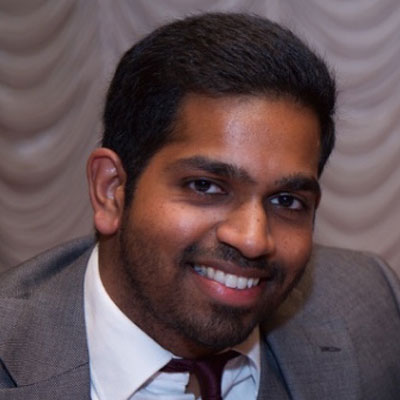Welcome to
GP Specialty Training
Your complete guide for entry preparation into GP Training and MRCGP Exams.
We are now offering complete GP Preparation sessions!
If you are getting ready to become a GP trainee after your medical career, get in touch with us and we will guide you for the MSRA to outstanding results. Likewise for the MRCGP exams (AKT and SCA) our tailored courses will target high yield recurrent topics in a 1 day intensive course by our experienced tutors.

Our Team

Sujeen
Dr Sujeen Chandramoorthy is one of the course tutors who will be focusing on covering all aspects of the selection center . . . .

Laleesh
Dr Laleesh Chandramoorthy is one of the course tutors who will be covering teaching on the selection center interview scenarios . . . .

Nivian
Dr Nivian Sukirthan is a NHS and Private GP who will be covering the MSRA and AKT. He scored in the top decile when doing the MSRA . . . .
Our services
Our vow to you, is you will be taught by those who have excelled in GP examinations themselves. As such, the MSRA will be taught by a doctor who scored in the Top Decile and the AKT will be covered by a doctor who scored >85% in each section they teach.

Full Day Course
Our 1-day intensive course will address both parts of the multi-specialty recruitment assessment (MSRA) exam. It compromises of the clinical problem solving section and professional dilemma/SJT paper. We ensure that difficult topics are covered in the course so you take home new nuggets of information rather than common topics which you have already revised. For the professional dilemma part our techniques will help you to think about the questions with a different approach and score you the best mark possible.

Skype Sessions
We know that during GP Exam preparation, trainees often encounter areas where they need special Attention. Which is why we offer one-to-one Skype sessions for all your queries, doubts and concerns. It also gives us the opportunity to teach you valuable tricks and tips about the GP Exams.
Our testimonials
AKT Question Bank
The GPST Courses AKT Question bank gives trainees the most realistic exam preparation for their AKT. It should be used as an additional online tool and trainees can expect the level to be of real exam standard because each question is based on real topics from previous AKT sittings.
The best way to use this question bank would be to research the topic of the question after you answer. Why? These topics are likely to be repeated so you will not only cover multiple learning points but also learn how to manage the same topic when asked in a similar fashion for the real exam.
Click on the link below to sign up to the 1 month or 3 month AKT Question Bank.
Our Question Bank is coming soon however we will provide a mock exam with our full day course.
Trainees should read the information below before starting their revision.
3 hour 10 minutes Paper with 200 questions
- This gives 57 seconds per question
- There are 3 sittings of the exam per year: Usually April or May/October /January
The 200 questions are split to the ratio of:
i) 80% clinical medicine
ii) 10% Critical appraisal & evidence
iii) 10% health informatics and administrative issues
- The best starting point for any trainee would be to download the RCGP AKT content guide which can be found on the RCGP website. It is the best way for trainees to make sure their revision is targeting the correct content as per the college recommendations.
- Every single question matters. There are a lot of trainees who have failed between 0.5 – 1.5%. Concentration for the 3 hours 10 minutes exam takes discipline and focus. But those who put in the hard work will reap the reward.
- Every question in this bank has been based on topics of questions from previous sittings, most are very similar so use these questions to get a true understanding of the level of questions.
- To test trainees knowledge, we will ask multiple questions on the same topic especially if it has come up multiple times in the AKT. Sometimes we will only ask a topic once if it is not too common.
- There are pilot questions in the AKT i.e. some questions used in the real exam will not be counted toward the final marks. However, candidates will not know which questions are pilot ones.
- Timing is key, you need to practise and practise under timed conditions nearer toward the exam date. 57 seconds is not a long time especially with some questions having 2 or 3 parts to answer.
- Candidates should attempt to use the AIT booklets that are sent out to RCGP members every month as they have AKT questions and topic explanations. We have noticed that a lot of the topics in these AIT booklets are being repeated in the real exam. (But we will also develop questions on the topics from the booklets so this will save you a lot of time as well).
- RCGP self-test is a free resource and question bank to use in conjunction with other question banks; after doing the RCGP self-test you will notice that the wording of questions is different compared to other question banks.
- RCGP have essential updates and podcasts which are a useful tool, candidates should be aware of the topics that are being discussed on these as they are likely to be questioned.
- Our statistics section targets the most common topics that have been asked in previous AKT exams. We have used the past topics to create meaningful questions and our summary after questions will drill the main points in the quickest way.
- For those trainees that would like to delve into further topics that have not been directly asked about in the handful of last AKTs then read topics on:
- ANOVA
- Chi-squared test
- Confounding
- Correlation
- Pearson’s correlation co-efficient
- Mann-Whitney U test
- Students T test
- Type 1 and 2 errors.
- Sensitivity and specificity is surprisingly not always asked in the AKT. However when it was asked in the last few attempts i.e. January 2019 and May 2019 the questions were straightforward but time consuming. If you are going to attempt the question straightaway rather than flagging it for later we would advise most definitely using the marker-board provided to write out the study values so you are 100% sure you are answering correctly.
- With sensitivity and specificity do not memorize the table format i.e. what should be in the vertical and horizontal column because in the exam they could give you the filled out table in another order. Therefore understanding the definitions which will only come about with repetition and practicing questions will you save a lot of time in the exam.
- Kaplan Meier plots will most likely be asked in the AKT. It will in the form of a plot with one or two studies and there will be 5 options asked to interpret which answer is true. It is a time consuming question unless you are lucky enough to read the first option and find that is it true. A tip with these questions if you find statistics difficult is to flag the question and come back to it later so you do not miss the easy questions that could be asked later in the paper. Trainees should also research Hazard Ratio.
- If you do not know what a L’abbe plot looks like please use a few minutes to familiarise yourself as it has been frequently asked in the exams. Our questions will give you the basics of how to answer the L’abbe plot AKT questions as there is only a limit of what can be asked about this plot but as mentioned take time to review what they look like.
- Candidates should familiarize themselves with a quick image of what a Box and Whisker plot looks like online. Although unlikely to be asked in the AKT it is essentially a rectangle box with a line marked in the box which is the median. At the lower end of the box is the 1st quartile (25th centile or 1/4 of the data) and other side (top of the box) is the 3rd quartile (75th centile or 3/4 of the data). If in the AKT they ask what the Interquartile range is – this is the difference between the 3rd and 1st quartile.
The remaining two forks (whiskers) coming from each side of the box (top and bottom) signifies the lower and upper extreme values.